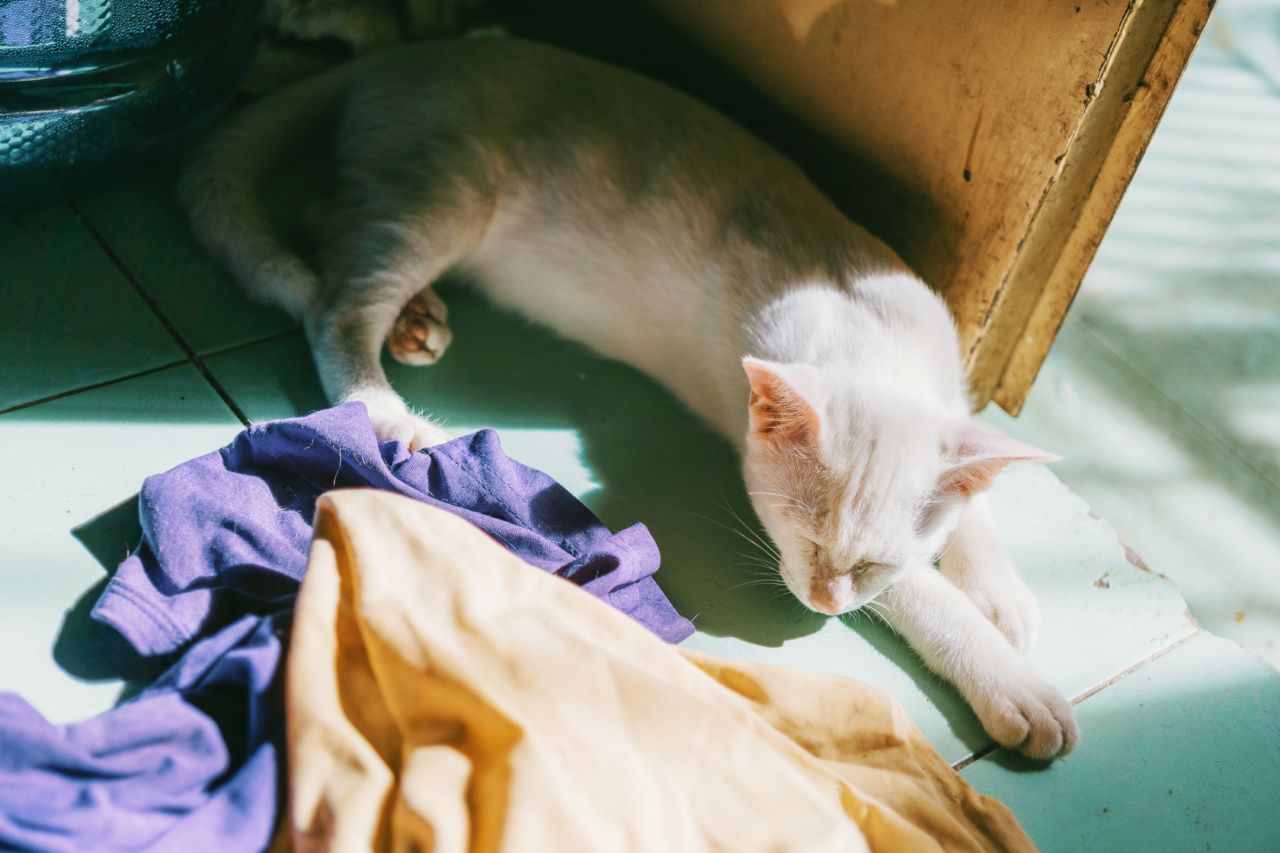One of the most debated topics in the realm of sleep is whether sleeping with clothes on is harmful to your health. Some argue that wearing clothes to bed is essential for maintaining body temperature and promoting good sleep hygiene.
On the other hand, there are those who claim that sleeping in the nude is more beneficial. In this article, we will explore the pros and cons of both practices and try to determine which option is healthier for your overall well-being.
The Argument for Sleeping with Clothes On
Those who advocate for wearing clothes to bed argue that it provides a sense of warmth and security, allowing the body to maintain a stable temperature throughout the night.
This can be particularly beneficial during colder seasons or for individuals who tend to feel chilly during sleep.
Furthermore, sleeping with clothes on may prevent excessive exposure to cold air, which can potentially lower the risk of catching a cold or developing respiratory illnesses.
By providing an extra layer of insulation, clothes can help regulate body temperature and keep you comfortable throughout the night.
The Case for Sleeping in the Nude
Opponents of sleeping with clothes on believe that sleeping in the nude has several health advantages. Firstly, it allows the body to naturally regulate its temperature without any interference from clothing.
During sleep, our bodies undergo thermoregulation processes that help maintain optimal internal temperatures. Sleeping naked can aid in this process, ensuring that we don’t overheat or become excessively cold during the night.
Additionally, sleeping naked can promote better airflow and ventilation for the body, reducing the likelihood of developing skin conditions or fungal infections.
The absence of clothing allows the skin to breathe and prevents the buildup of excess moisture, which can contribute to the growth of bacteria or yeast.
Furthermore, skin-on-skin contact while sleeping in the nude can release feel-good hormones, like oxytocin, that improve overall mood and enhance intimacy between partners.
The Impact on Sleep Quality
Another crucial aspect to consider when choosing between sleeping with clothes on or off is the impact on sleep quality. Good sleep hygiene is vital for overall health and well-being.
For some individuals, wearing clothes can provide a sense of comfort and security that aids in the relaxation process and promotes better sleep.
The soft touch of fabric against the skin can create a soothing effect, helping to alleviate stress and anxiety that might interfere with falling asleep.
However, for others, sleeping without clothes may be more conducive to restful sleep. Removing clothing can eliminate any potential discomfort or restriction and may enhance freedom of movement during the night.
Moreover, it can minimize the interference caused by irritating tags, buttons, or tight clothing that could disrupt sleep.
The Influence of Body Temperature
Body temperature plays a pivotal role in regulating sleep patterns. The natural drop in core body temperature, which typically occurs during the evening, signals to the body that it’s time to sleep.
The body’s temperature continues to decrease during the night, reaching its lowest point in the early morning hours.
For some individuals, sleeping in cooler environments and with fewer clothes can facilitate the natural drop in body temperature, leading to faster onset and improved quality of sleep.
Conversely, others may prefer a warmer sleep environment and may find that wearing clothes helps to maintain a comfortable body temperature throughout the night.
Considerations for Special Circumstances
When it comes to certain individuals or specific circumstances, sleeping with clothes on or off may have varying effects on health.
Pregnant women, for instance, often experience hormonal changes that can cause fluctuations in body temperature. In this case, lightweight and loose-fitting sleepwear is generally recommended, as it allows for air circulation and prevents overheating.
Moreover, individuals who suffer from certain skin conditions, such as eczema or psoriasis, may benefit from sleeping naked as it can minimize skin irritation and promote skin healing.
However, consultation with a dermatologist or healthcare provider is crucial to determine the best course of action for each individual.
Maintaining Good Sleep Hygiene
Regardless of whether you choose to sleep with clothes on or off, it’s important to maintain good sleep hygiene practices to optimize your overall health and well-being.
Always strive for a clean and comfortable sleep environment, ensuring proper ventilation and temperature control. Use breathable and hypoallergenic bedding materials that promote airflow and reduce the risk of allergies.
Additionally, develop a consistent bedtime routine that includes relaxation techniques and a wind-down period to prepare your body and mind for sleep.
Avoid excessive consumption of stimulants like caffeine and nicotine, especially close to bedtime. These substances can interfere with the sleep-wake cycle and make it harder to fall asleep or achieve deep sleep.
Finally, listen to your body’s unique needs and preferences. Experiment with different sleeping arrangements and clothing options to find what works best for you individually.
Conclusion
Ultimately, the decision of whether to sleep with clothes on or off depends largely on personal preference and individual circumstances.
There isn’t a one-size-fits-all answer to this debate as the effects of sleeping with clothes may vary from person to person.
It’s important to prioritize factors such as maintaining comfortable body temperature, allowing proper airflow and ventilation, and promoting overall sleep quality.
By considering these factors and listening to your body’s needs, you can make an informed decision that best suits your own health and well-being.






























